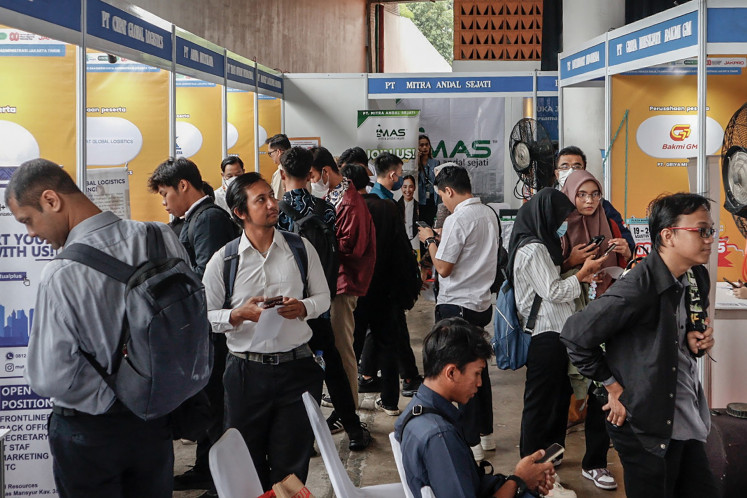Popular Reads
Top Results
Can't find what you're looking for?
View all search resultsPopular Reads
Top Results
Can't find what you're looking for?
View all search resultsTransparency drives bureaucracy reforms
The lack of government transparency on bureaucratic reform has left the media unable to access information on the issue and the subject is underreported
Change text size
Gift Premium Articles
to Anyone
T
he lack of government transparency on bureaucratic reform has left the media unable to access information on the issue and the subject is underreported.
There are, however, very few success stories on the matter to report.
Eko Maryadi, chairman of the Alliance of Independent Journalists (AJI), said on Wednesday that the government’s openness to the media is an indicator of bureaucrats transparency to the public.
“If bureaucrats are reluctant to give information to the press, how can they be transparent to the public?” Eko said on the third day of the Bureaucracy Reform Conference, Exhibition and Stakeholders Meeting in Jakarta. He added that bureaucratic reform itself can be measured by how a government gradually shifts from being concealed to being transparent to the media.
“The Freedom of Information Law [UU KIP] was initiated in 1999 but it was endorsed only in 2008. The law became effective in 2010 but up until now implementation is only around 30 percent. The government is moving very slowly in ensuring accessible information for public,” Eko told The Jakarta Post.
Imam Prakoso of the United States Agency for International Development (USAID) also said that the media play a great role as a voice of the people.
“The people feel more at ease voicing their complaints through the media, as it gives them distance from the institutions they are filing the complaints against,” Imam said.
“Therefore the media must ensure that the public has their voice heard,” he added.
Herry Abdul Aziz, the Communication and Information Ministry’s E-Government director, argued that the government still has to regulate the accessibility of data which may harm the governmental institutions themselves.
“Accessibility of data is a matter of perception: the government still has to follow procedure. While some people might think that waiting two weeks for data is a very long time, for others it’s a matter of procedure,” Herry told the Post.
Meanwhile, Dadan Suharmawijaya of the Jawa Pos Institute of Pro-Otonomi (JPIP) said that the media should not only focus on “bad news” but also good news in the reform process.
“The media should not only be a tool to criticize but encourage government institutions by covering success stories of reform,” Dadan said.
According to Eko of AJI, what the journalists see in the field is no different from what the public see. He said that the substance of the news itself is not important, as long as the news is accurate and ethical.“The main task of journalists is controlling and supervising the government,” Eko said. (nad)










